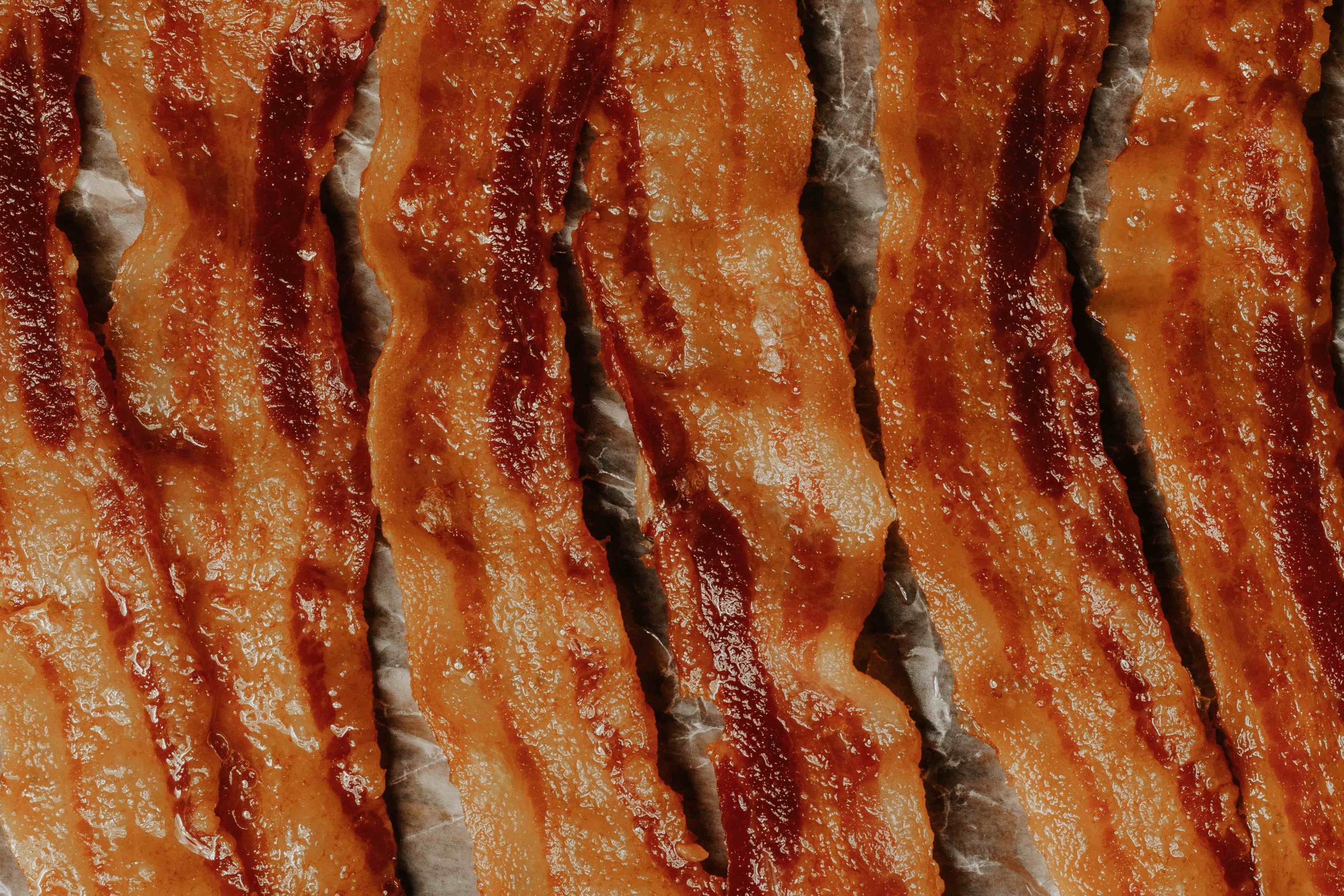Yes, dogs can eat bacon, but it’s not recommended.
For a meat-eating animal, there’s no doubt that bacon is a tasty and tempting treat. But bacon is also salty, fatty, processed, and just generally not good for your dog.
If your dog sneaks a small bite of bacon, it’s not cause for alarm—it’s not toxic per se. But bacon does come with health risks. We recommend that you avoid feeding it in all but the rarest of occasions, and in the smallest of quantities as too much of it can put dogs at risk for obesity and pancreatitis.
Key info about bacon
Bacon is salt-cured pork, often served fried to a crisp. One slice of cooked bacon generally contains somewhere between 40 and 60 calories, depending on the thickness of the cut. It contains near-equal amounts of fat and protein with no carbohydrate or fiber content. Bacon is typically high in sodium and contains few other vitamins or minerals.
Equally important, bacon is a processed meat, made and cooked in ways that present health risks to people and dogs.

The benefits/drawbacks of bacon
Bacon is high in drawbacks and low in benefits.
Bacon is not a significant source of essential nutrients but is high in fat and calories relative to the serving size. The high fat content in bacon can contribute to excess calorie intake which might put your dog at risk for obesity, if consumed in excess.
Overindulgence in table scraps (like cured meat treats) can also put your dog at risk for pancreatitis–a painful, and potentially deadly condition (read more about pancreatitis in dogs).
Bacon, along with cured ham, hot dogs, salami, and the like, is considered a processed meat, or meat that has been transformed through salting, curing, fermentation, smoking, or other processes to enhance flavor or improve preservation. In 2015, based on a comprehensive review of scientific research, the World Health Organization declared these processed meats carcinogenic to humans, even in moderate quantities.
Bacon is likely to be served crispy, and when meat is cooked at extreme temperatures, it forms compounds called heterocyclic amines (HCAs) which have been identified as potential carcinogens. Studies have found that bacon contains the highest levels of HCAs of any other cooked meat.
Conclusion: If your dog grabs a little bite of bacon, don’t panic. But steer clear of feeding bacon as a part of their regular diet, or as a go-to treat.
Pet health is an important topic. That’s why The Farmer’s Dog editorial team carefully vets and reviews every piece of content we publish. We deliver evidence-based advice and medically reviewed facts that focus on pet nutrition, health, and well-being. The mission of this site is to help people provide the best care possible for their dogs by publishing only trustworthy, accurate, and timely health information.
This article was vetted by a vet.
Reviewed by Alex Schechter, DVM, founding veterinarian at Burrwood Veterinary. He was previously founding veterinarian at Pure Paws Veterinary Care.




